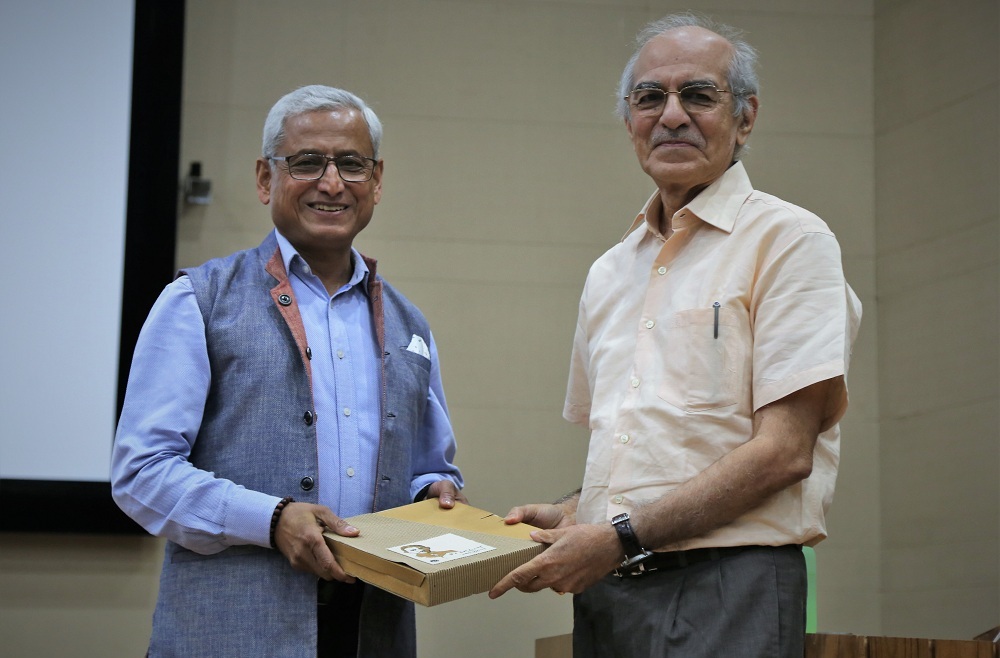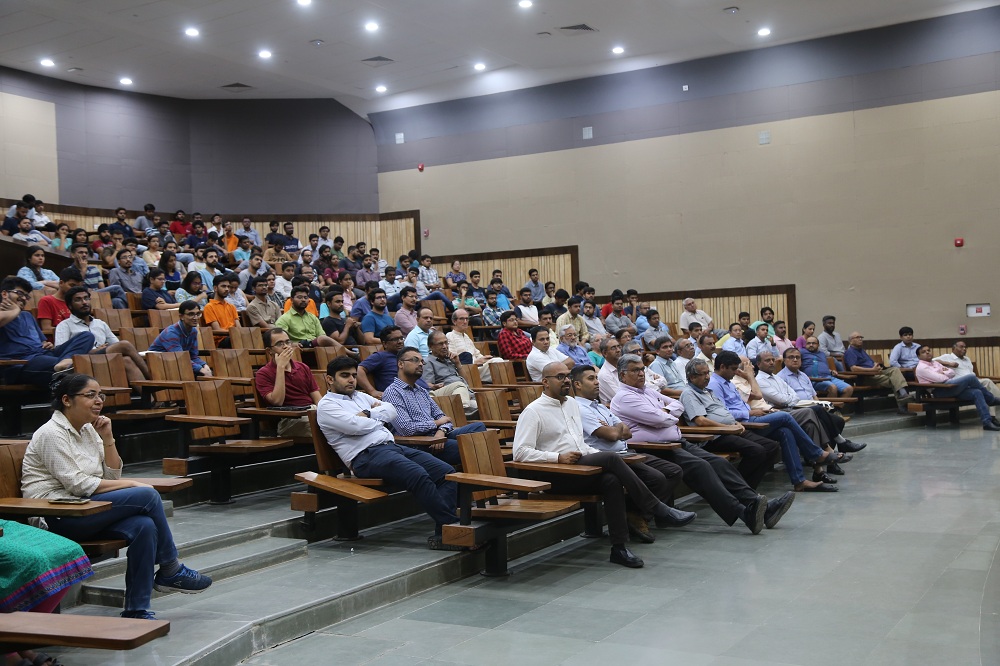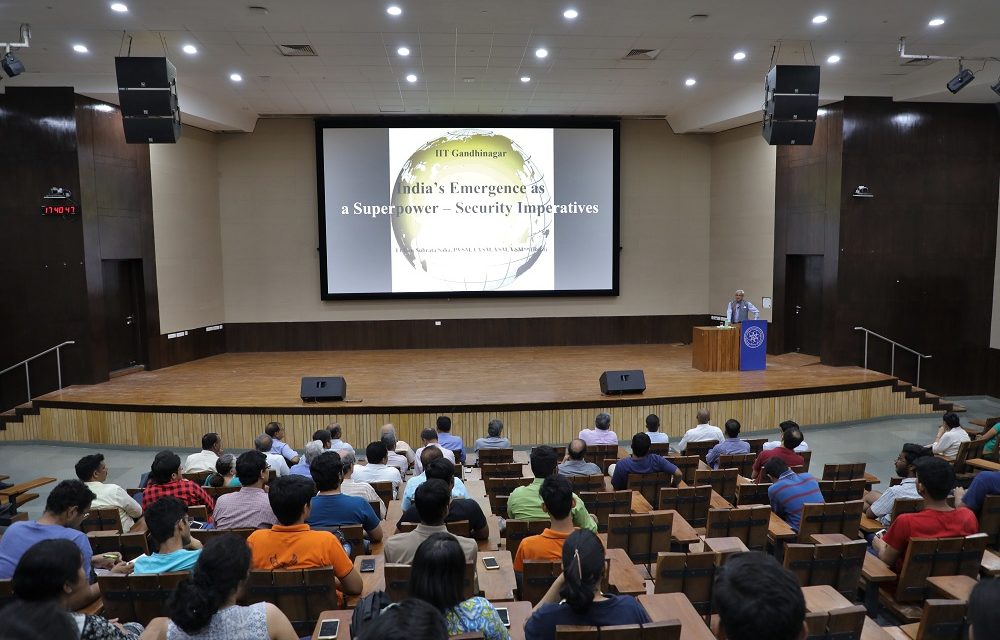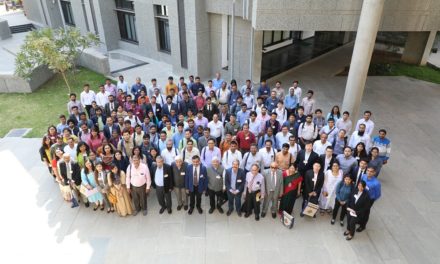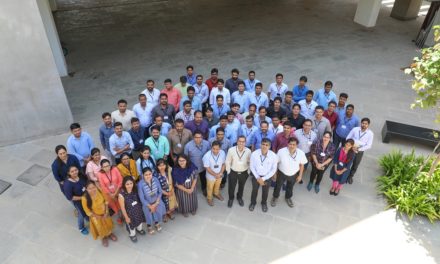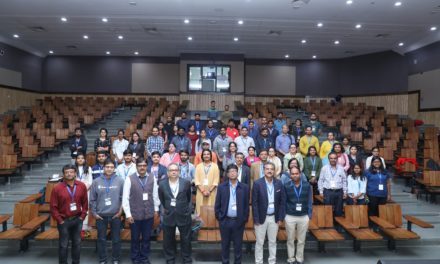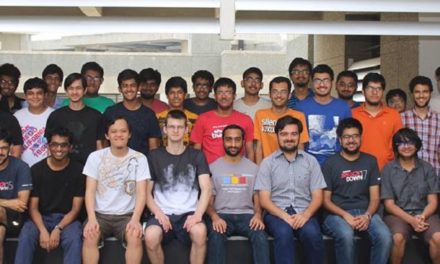As part of the IITGN Decennial Lecture Series, former Deputy Chief of the Army and Member of the National Security Advisory Board (NSAB) Lt Gen Subrata Saha (Retd) delivered the second lecture on India’s emergence as a superpower – security imperatives at IITGN on April 18, 2019.
Lt Gen Saha began his talk with the ‘Idea of India’, propounded by Shri Rabindranath Tagore in his poetry, ‘Where the mind is without fear and the head is held high’.
India is on its way to become a superpower. By 2030, it is envisaged to become the third largest economy in the world. It is home to one-sixth of the world’s population. But there are multiple security challenges that India faces both in the military and non-military dimensions. For its people to prosper and the country to grow to its rightful place, India must be strong and secure.
Lt Gen Saha gave an all-encompassing definition of national security and stressed upon the need to articulate India’s national security strategy. “We do not have a national security strategy defined and placed in the public domain, because we don’t have political consensus on critical security issues facing the country and there are problems of coordination among multiple ministries/departments”.
Urging the young generation to create both consciousness and consensus on National Security, he said, “We should talk about national security strategy as much as we talk about our Constitution.” Every citizen should be clear on what our threats are, and what are our responsibilities towards national security.
In recent incidents, India has shown great resolve in defending the nation against internal and external threats. With clearly defined long-term objectives, every incident can be turned into an opportunity to achieve what we want. Step by step. Surely and steadily.
Lt Gen Subrata Saha, PVSM, UYSM, YSM, VSM** (Retd)Speaking about the global security environment, he highlighted the growing polarisation in the world, with China on the one hand and the USA on the other, and Russia emerging as the third pole. Enumerating the points of contention between US-China, US – Russia, Russia – China, he observed that “unlike in the past, the polarisation that we are witnessing now is less ideological and more political and economic. National sovereignty and security are increasingly displacing international commitment and alliances”.
Explaining the contours of China’s Belt & Road Initiative, he marveled on its scale and sophistication, while underscoring the technological, economic and strategic implications. He also spoke about why India is strategically important to the USA.
Analysing India’s relations with neighbouring countries, Lt Gen Saha highlighted the importance of India’s ties with Afghanistan and Iran. With China, he highlighted thorny issues like unresolved borders, military aid to Pakistan, stance on terrorists, CPEC, upper riparian control of Brahmaputra waters, and trade imbalance. At the same time with China, there are points of convergence on global issues and scope to work together on issues of mutual benefit and concern. With Pakistan, the relationship is marked by hostility primarily due to Pakistan’s brazen use of terrorists as strategic assets, and nuclear saber rattling. The strong grip of the Pakistan Army on the country and increasing radicalisation is worsening the dynamic.
History of insurgencies in India was traced, clearly establishing how internal dissensions have been exploited by our adversaries for waging a proxy war against India. He explained how insurgencies in Mizoram, Punjab, and Assam have been resolved. In J&K and Nagaland even though the military situation has been stabilised many times over the political resolution remains elusive. The spread of Maoist Left Wing extremism, across several states, is somewhat contained now but needs resolution at the earliest.
Highlighting the detrimental effect of India’s dependence on import for military capability, he said, “military superiority is not determined by numbers alone, armed forces need better technology.” Scientists and engineers have a major role to play not only in indigenising military capability but developing the strategic influence of the country.
In conclusion, he summarised India’s security objectives and their imperatives and apprised the audience of the current national security architecture. Praising the practice of interdisciplinarity at IITGN he said, “This is the only IIT where you don’t make distinctions between streams of engineering. Military systems require integrated and multi-disciplinary development, IIT Gandhinagar has the right environment for developing military technology”.
Lt Gen Saha advised the young engineers to invest themselves in cybersecurity as it is turning out to be the greatest threat and consequently offers more opportunities than even IT. He urged the students and the faculty to put their energies into building better technologies for the country. He assured them that they could capitalise on security-related technologies to secure better returns not only from home but also from the international market.
